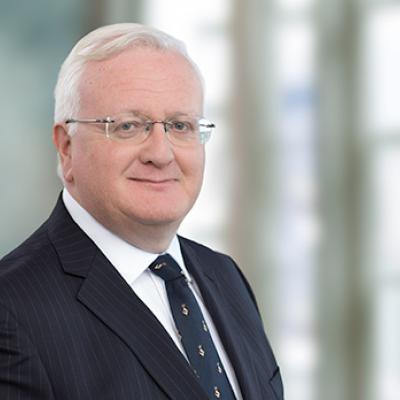The prospect of Brexit is exercising the minds of many people including the diplomatic service. On 29 August 2016, most of Ireland's diplomatic corps met in Dublin to discuss various issues including Brexit.
The prospect of Brexit is exercising the minds of many people including the diplomatic service. On 29 August 2016, most of Ireland's diplomatic corps met in Dublin to discuss various issues including Brexit. The Department of Foreign Affairs & Trade's Departmental Conference at Dublin Castle was attended by eighty Irish Ambassadors and Consuls General and other senior diplomats. The meeting was addressed by the Minister for Foreign Affairs & Trade, Mr Charles Flanagan TD. The Minister's remarks on Brexit are worth noting:
"In a very real sense, the UK referendum result brings us all into unchartered waters. It is an immensely significant development…
As a young country we are used to dealing with major shifts in the institutional framework that determines our international engagement. It happened in 1955 when Ireland joined the United Nations and in 1973 when we joined the European Economic Community. The Good Friday Agreement provided a fundamentally new framework for managing the three strands of relationships on these islands.
We are facing now into a challenge of a similar order – one that will reshape the institutional framework in which we as a member of the EU engages with a United Kingdom outside that Union. The particular challenge we face now is to protect the institutional gains of recent decades, most particularly those of the Good Friday Agreement.
As we prepare to chart a new course for the future, I want to set out some considerations which I believe must inform our approach.
First, our approach must be firmly anchored in our position as committed member of the EU and to the success of a project that can and should be made more effective and more responsive to the needs of its citizens but has nevertheless been transformative for the better in Ireland. In mitigating the risks arising from Brexit, we have to be conscious that we face one risk even greater – a diminishing of the EU project itself. The UK referendum result is one of several major challenges to European cohesion – the challenge of economic recovery and job creation; of public questioning of the EU and its relevance to their concerns; of insecurity within our borders and in our neighbourhood; of developments globally and in our own neighbourhood that challenge our values and test our determination to uphold them. Addressing these challenges is the business of every member state. We should play our role to the full.
Second, optimising this role must engage the network of bilateral relations with our European partners. It has often been said that when times were good, governments scaled back their investment in EU business, reducing their presence at the table for issues seen as non-essential. That has not been the case under Enda Kenny’s stewardship as Taoiseach – his Ministers are under clear instruction to, at all times, play an active and constructive role in European affairs. In this context, I recognise that equally important for the future, perhaps, is our investment in the bilateral relationships that support the understanding and collaboration that allow us to tackle the biggest issues. The relocation of EU experience to this department from the Department of the Taoiseach will greatly assist this work. So too will the breadth of our embassy network in Europe which we must use to the full in support of this. The Taoiseach’s recent meetings in Ireland with President Hollande and in Berlin with Chancellor Merkel, the visit last month by Italian FM Gentiloni and tomorrow by the Dutch FM Bert Koenders and the conversations I have had with all of my EU colleagues have to be seen not as a phase of engagement but as a normal and necessary mode of operating; not alone as an opportunity to communicate our concerns but also to listen attentively to our partners. Our meeting with Foreign Minister Bert Koenders on Wednesday will be an opportunity to do this.
It goes without saying that a successful negotiation requires a keen understanding of the factors at play on the other side of the table. But it equally requires a keen and empathetic understanding of the concerns on your own side too. That is an insight as old as the 6th century BC when the Chinese philosopher Sun Tzu wrote his treatise on strategy. But it is easily forgotten.
The third element relates less to Brexit than to the global context in which we operate. Notwithstanding the multiple challenges of managing a British departure from the EU, we should be alert also to the risk that this preoccupation might lower our gaze or reduce our horizons.
We have always seen our foreign policy reach as a long one, our voice carrying far, our weight greater than our size. Our stature at the UN is as high as it has ever been over our 60 years of membership. Irish Aid has maintained and in some respects enhanced its status as one of the most effective programmes in the world. We are acknowledged as a world leader in efforts to tackle hunger and malnutrition. We will not allow the mobilisation that will be needed to respond to this Brexit challenge to diminish, however inadvertently, our role as a constructive global player.
This is not solely a matter of promoting our values, though we should never shirk from that. It is a matter of promoting and protecting our fundamental interests. The UK referendum has highlighted the importance of enhancing our market diversification. Of course we will aim to protect our UK market, while protecting our competitive advantage over the UK…."
The full text of the speech is available here.
For further information please contact Dr. Vincent Power or your usual contact in A&L Goodbody.
Date published: 5 September 2016

